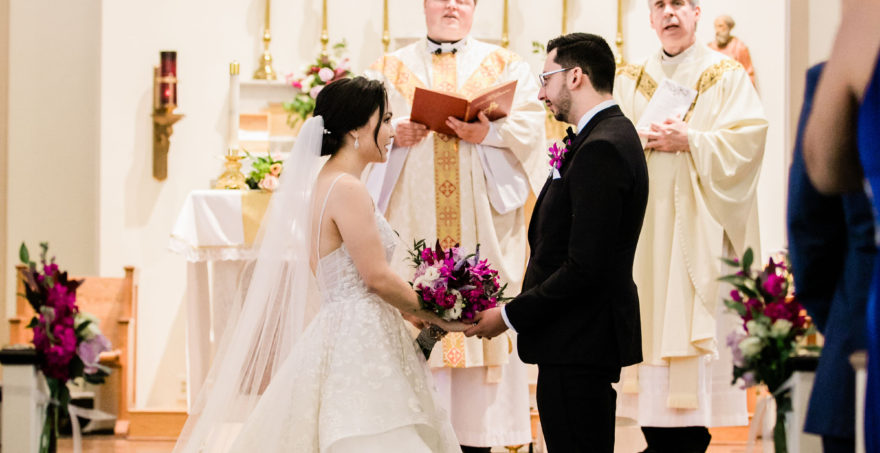How Much Does it Cost to Marry in the Church?

How much does it cost to get married in the Catholic Church?
Actually, nothing. Sacraments are not for sale. The Catechism of the Catholic Church (#2121) makes clear that the First Commandment forbids simony, which is the buying or selling of sacred things.
It’s appropriate, however, for the bride and groom to share their joy and, in generosity, to contribute to the support of the Church and its ministers. The donations and stipends associated with a wedding fall into three categories:
1. Donation to the church. Traditionally, the couple makes a donation to the church in which they are married. Sometimes an amount—or a range—is suggested, but often it’s left to the discretion of the couple. If the bride or groom or both are registered parishioners, the suggested amount may be minimal, or none. The assumption is that they are already supporting the parish with their regular financial contributions.
Some couples marry in a historic chapel or church. Keep in mind that wedding donations can be an important source of support for older buildings.
Couples should ask about the suggested donation if it is not specified in the written marriage policy. A helpful rule of thumb is to consider the donation in relation to the total amount spent on the wedding. In no case, however, should financial circumstances prevent a couple from approaching the Church for marriage.
2. Music ministers and others. In addition to an organist, weddings may feature instrumentalists, a cantor, and other singers. Musicians’ fees are often explained in the parish’s marriage policy, or they can be discussed when the couple meets with the music director.
If the celebration includes a Mass, altar servers should be given a small offering.
3. Celebrant’s stipend. The services of the priest or deacon are free, but it is customary to offer a stipend. Usually, no specific amount is suggested. Couples may want to consider not only the time devoted to the rehearsal and wedding but also the effort put into the marriage preparation process.
A final note
Donations and stipends should be placed in clearly marked envelopes and given to the intended recipient. Celebrants are not usually expected to distribute the stipends.
Some parishes require that certain fees be paid in advance, for example, a deposit to confirm the date or the musician’s fee. Any remaining donations and stipends should be taken care of prior to the wedding day.




